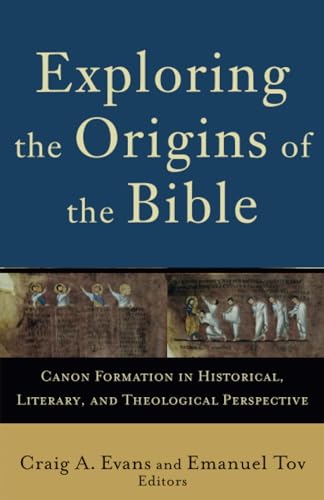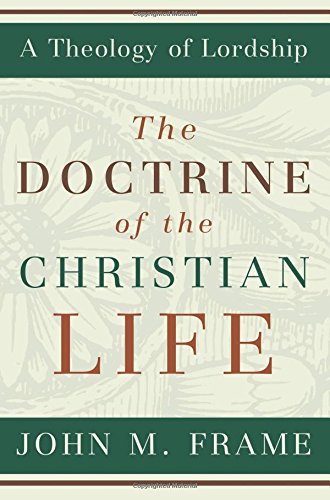Volume 34 - Issue 2
Editorial
By D. A. CarsonAbstract
During the last couple of decades, I have had occasion to reflect a little on the ambiguities and challenges surrounding what is sometimes called “polemical theology.” From time to time I shall use this editorial column to develop some of these reflections. Here I shall offer five initial observations.
During the last couple of decades, I have had occasion to reflect a little on the ambiguities and challenges surrounding what is sometimes called “polemical theology.” From time to time I shall use this editorial column to develop some of these reflections. Here I shall offer five initial observations:
(1) The category is slippery. Some think of “polemical theology” in terms of a glorious heritage of serious theological engagement and debate. Others are convinced “polemical theology” can have only negative connotations, so they speak and write against it—and thus indulge in polemical theology against polemical theology. Polemical theology is nothing other than contending for a particular theological understanding (usually one that the contender holds to be the truth) and disputing those that contradict it or minimize it. It is impossible to indulge in serious critical thought without becoming enmeshed, to some degree, in polemics. Every time you include a footnote that begins “Contra” you are engaged in polemical theology; every time you assemble six reasons as to why your interpretation of a biblical passage or your formulation of a theological issue is correct, and assert, or at least imply, that alternative interpretations or formulations are correspondingly incorrect, you dabble in polemical theology. The person who advances an exegetical or theological stance without reference to competing formulations may avoid polemics, but will usually not be taken seriously by those who have studied any issue, precisely because there is no serious engagement with those who disagree. It is not easy for Christians to be entirely free of polemics, and it is not wise to attempt such freedom. Their arguments will inevitably attract adjectives like ignorant, reductionistic, unengaged, naive—and rightly so.
(2) So it is not surprising that the Bible itself casts up countless examples of polemical theology. One thinks of Yahweh’s sneering refutation and condemnation of the idols in Isa 40–45; of the direct condemnation of alternative stances in, say, Galatians or Jude, or of Jesus’ condemnation of hypocrites including what they teach (e.g., Matt 23); of the symbol-laden destruction of imperial pretensions in the Apocalypse. One also thinks of many subtler forms of polemics. When Jesus tells parables to indicate that the kingdom dawns slowly, quietly, over time, and in function of how the Word is received (e.g., the soils, the yeast, the weeds and the wheat), he is implicitly challenging alternative conceptions of the kingdom, and thus he is engaged in polemical theology. When the Letter to the Ephesians devotes much of its space to working out the glories and characteristics of the one new humanity that God has brought about in Christ, joining together Jew and Gentile (and, in principle, people from every tribe and language and people), it is overturning alternative views of ethnicity, of self-identification, of how to find the true locus of the covenant people of God. In other words, any robust theology that wounds and heals, that bites and edifies and clarifies, is implicitly or explicitly engaging with alternative stances. In a world of finite human beings who are absorbed in themselves and characterized by rebellion against God, polemical theology is an unavoidable component of any serious theological stance, as the Bible itself makes clear.
(3) Nevertheless there is something wrong-headed about making polemical theology the focus of one’s theological identity. This can be done in many ways. There are well-known scholars whose every publication has an undertone of “everyone-has-got-this-wrong-before-me-but-here-is-the-true-synthesis.” Some become far better known for what they are against than for the overflow of their worship or for their generosity to the needy or even for their affirmation of historically confessed truth. Still other Christians develop websites and ministries whose sole aim is to confute error. God knows there is plenty of error to confute. To make the refutation of error into a specialized “ministry,” however, is likely to diminish the joyful affirmation of truth and make every affirmation of truth sound angry, supercilious, self-righteous—in a word, polemical. In short, while polemical theology is just about unavoidable in theory and should not, as a matter of faithfulness, be skirted, one worries about those who make it their specialism.
(4) In some ways it is convenient to distinguish polemical theology designed to challenge the stances of those who call themselves fellow Christians and polemical theology designed to challenge the stances of those who are not Christians and who may oppose Jesus. The latter goal makes polemical theology a subset of evangelism, certainly a subset of what is often called apologetics. Distinctions such as these could be teased out at considerable length, but perhaps it is enough here to make two further observations.
First, regardless of its audience and of the particular stance that is being challenged, polemical theology ought to develop a wide range of “tones.” Re-read Galatians. Within the space of six short chapters, Paul can be indignant with his readers, but he can also plead with them. He openly admits he wishes he could be present with them so he could better judge how he should adjust his tone. He can be scathing with respect to his opponents, precisely because he wants to protect his readers; he can devote several paragraphs to clarifying and defending his own credibility, not least in demonstrating that his core gospel is shared by the other apostles, even though he insists he is not dependent on them for getting it right. He happily connects his theological understanding to ethical conduct. All of this suggests that a mature grasp of the potential of polemical theology wants to win and protect people, not merely win arguments.
Almost five decades ago a noted evangelical scholar engaged Thomas Altizer, chief voice of the “Death of God” movement, in a public debate. Most witnesses of that evening judged that at the intellectual level Altizer had been seriously trounced, but most also thought that Altizer had been the more winsome of the two.
Second, at the risk of a generalization, those who spend their lives refuting and correcting fellow believers but who rarely engage at a serious level with ideas and stances in the broader world almost always find themselves at increasing odds with more and more believers. That should be unsurprising. Those who engage in a broader polemical theology are, on the whole, more grateful to focus with gratitude on the common heritage of Christians.
(5) For my last reflection, I want to recall the words of Bryan Magee, whose book Confessions of a Philosopher: A Personal Journey through Western Philosophy from Plato to Popper (New York: Modern Library, 1999) describes his own experience in polemics and what he learned from Popper:
I had always loved argument, and over the years I had become quite good at identifying weak points in an opponent’s defense and bringing concentrated fire to bear on them. This is what virtually all polemicists have sought to do since ancient times, even the most famous of them. But Popper did the opposite. He sought out his opponents’ case at its strongest and attacked that. Indeed, he would improve it, if he possibly could, before attacking it. . . . Over several pages of prior discussion he would remove avoidable contradictions or weaknesses, close loopholes, pass over minor deficiencies, let his opponents’ case have the benefit of every possible doubt, and reformulate the most appealing parts of it in the most rigorous, powerful and effective arguments he could find—and then direct his onslaught against it. The outcome, when successful, was devastating. At the end there would be nothing left to say in favor of the opposing case except for tributes and concessions that Popper had himself already made. It was incredibly exciting intellectually. (152–53)
That may not always be the path of wise polemics, but few could doubt that this is the path of wisdom where the audience is already skeptical about your position. In the world of Christian apologetics, I know no one more gifted in this Popperian form of argumentation than Tim Keller. Witness his The Reason for God: Belief in an Age of Skepticism (New York: Dutton, 2008). Keller manages to construct his opponents’ arguments in such a way that they are more powerful and devastating than when the opponents themselves construct them. And then he effectively takes them apart. No one feels abused, precisely because he has treated their stances more ably than they can themselves.
The church of Jesus Christ could use more polemical theology in which the polemicists have learned such skills as the fruit of grace.
D. A. Carson
D. A. Carson is emeritus professor of New Testament at Trinity Evangelical Divinity School in Deerfield, Illinois, and cofounder and theologian-at-large of The Gospel Coalition.
Other Articles in this Issue
We begin with a question of translation. Many translations place a period after the word “conviction” in 1 Thess 1:5: “in power and in the Holy Spirit and with full conviction...
The Inexhaustible Fountain of All Good Things: Union with Christ in Calvin on Ephesians
by Lee GatissJuly 10, 2009 was the 500th birthday of the acclaimed French Reformer John Calvin...
The name of Martin Luther is perpetually linked to the doctrine of justification by faith alone...
Of the many questions currently surrounding the discussion about justification, the relationship between justification and spiritual fruit merits attention...
Every year a few students ask me my thoughts about whether they should pursue doctoral studies and I respond with what has come to be known as ‘The Speech...






